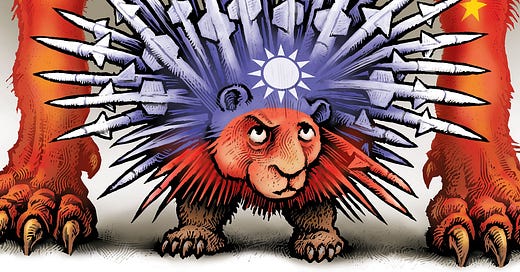Taiwan Is Strengthening Its Military Defense in the Face of Pressure From Xi Jinping and the CCP.
Taiwan's military budget is expected to reach $19.4 billion in 2023.
Nancy Pelosi's visit to Taiwan at the beginning of August 2022 had the effect of reinforcing tensions between Xi Jinping's China and Taiwan more than ever. While the Chinese military's show of force in the days following Nancy Pelosi's visit was primarily intended to distract the Chinese people from China's real internal problems, Taiwan nonetheless too…
Keep reading with a 7-day free trial
Subscribe to Sylvain Saurel’s Newsletter to keep reading this post and get 7 days of free access to the full post archives.




